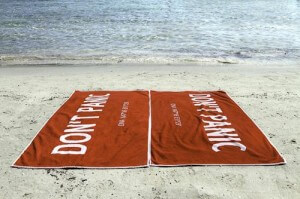
Expect the unexpected
So it’s happened.
You have an unwelcome and stiffly worded letter from Getty Images. It says you’ve used their pictures without the appropriate licenses and now you owe them a couple of thousand pounds, thanks very much.
Crikey. OK. So what do you do now? Cough up? Ignore it? Panic?
Those'll be your first questions. It's likely you'll have many more:
Are they serious? Have they got the right person? Can’t I just take the image down? What happens if I don’t pay? How much trouble am I in exactly? They can’t just demand money from me can they? Do I need a solicitor? Is there help for this sort of thing?
What's clear is that you need some answers – and quickly. The payment deadline in the letter is only 14 days away …
Dos and don’ts
Fortunately (or unfortunately, depending on your point of view) we have experience of exactly this kind of situation.
So, we’ve distilled that experience into some useful pointers if you're ever on the receiving end of a claim. Hopefully, most of your questions are answered here:
- Don’t ignore the letter. Despite what you read on internet forums, Getty aren’t just trying it on and the claim won’t go away if you don’t do anything. Ignoring it makes you look wilfully dismissive (which never goes down well) and stringing it out only delays the inevitable.
- Don’t think taking the image(s) down is enough. It’ll help put a lid on the amount Getty can claim but it won’t solve the problem completely. Getty will still want compensation for the time the picture has been in the public domain up to that point.
- Don’t assume they won’t go all the way. Again, ignore what the internet know-it-alls say because Getty won’t hesitate to go to court if they’re not getting what they’re owed. It doesn’t happen often but, rest assured, they’re anything but a pushover. And they don’t want to be seen as one either.
- Don’t rely on the ‘ignorance is bliss’ argument. Claiming you weren’t aware you needed permission to use an image or images won’t hold water and, ultimately, it doesn’t matter anyway. Getty don’t care if you knew or not and, strictly speaking, neither does the law.
- Don’t think they don’t have a right to claim. They do because they’re protecting what’s rightfully theirs. Selling and licensing digital media is how they make money and they’re doing what’s best for their business. You’d do the same wouldn’t you?
- Do take it seriously. The fact you have a letter should be all the warning you need. Do try to make dealing with it a priority because the longer it goes on the more it’ll cost.
- Do go to Getty’s website. Find the picture(s) in question and use their licence calculator to find out how much you owe (if they haven’t already told you). If they've given you a loss figure, it’s a good idea to get your own as a matter of course. It’ll prove handy if you decide to contest the amount they’re claiming.
- Do assume you have to pay. If you didn’t find and supply the image(s) yourself then it might be possible to make a recovery claim against the designer or subcontractor who did. But, regardless, if the letter is addressed to you, you’ll have to pay up in the first instance.
- Do try to negotiate. Reply to their letter promptly, telling them you didn't realise you were infringing their rights (if you didn't). State the amount you've calculated as their loss and make them an offer. If there’s no movement, ask for an exact breakdown of the figure they have – theirs is likely to be higher. They’re usually more flexible if you’ve accepted liability and are willing to pay up.
- Do get in touch with your professional indemnity insurance broker or insurer the moment you get the letter. Your policy should cover copyright infringement claims exactly like this – it makes sense to use your insurer’s expertise and resources when it makes the most difference. Besides which, it’s comforting to know you’re not on your own.
Although it’s not going to be a pleasant experience, dealing with a Getty copyright claim needn’t be the end of the world – or your business.
The important thing is to deal with it quickly, limit the damage as much as possible and not let the situation get out of hand.
If you still have an unanswered question or you’d like to know more about protecting yourself, feel free to get in touch. We’re happy to help.
claimsGetty images
